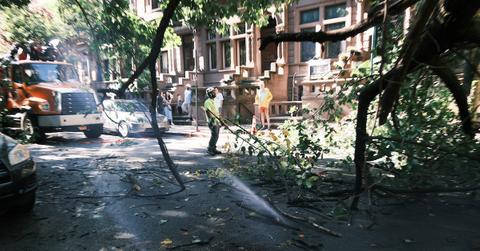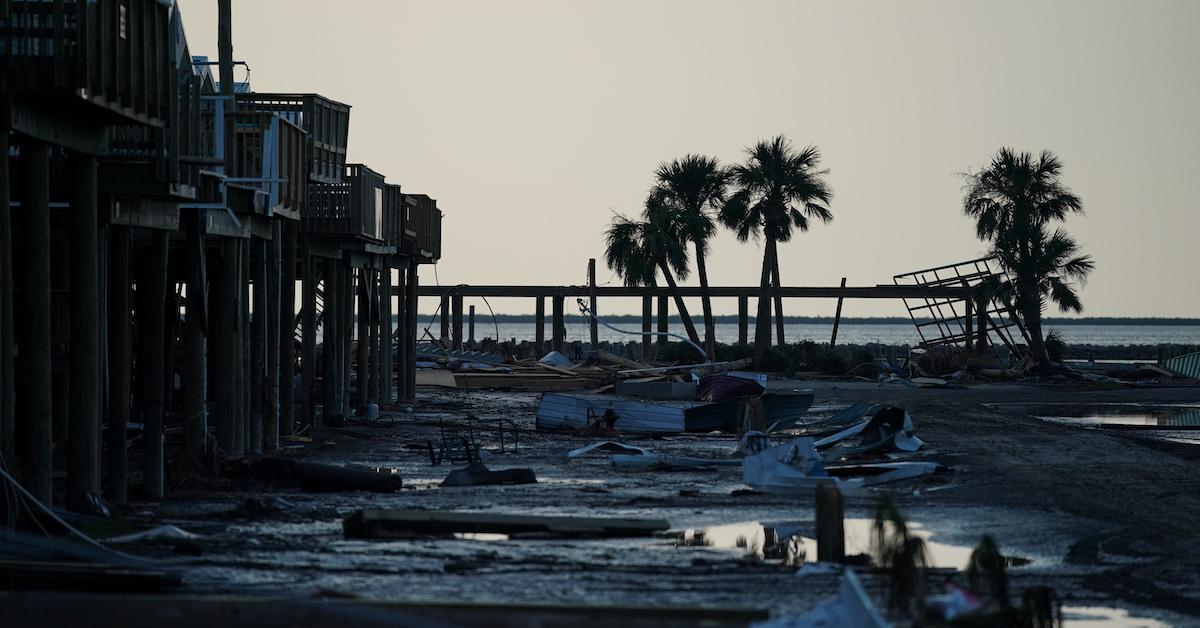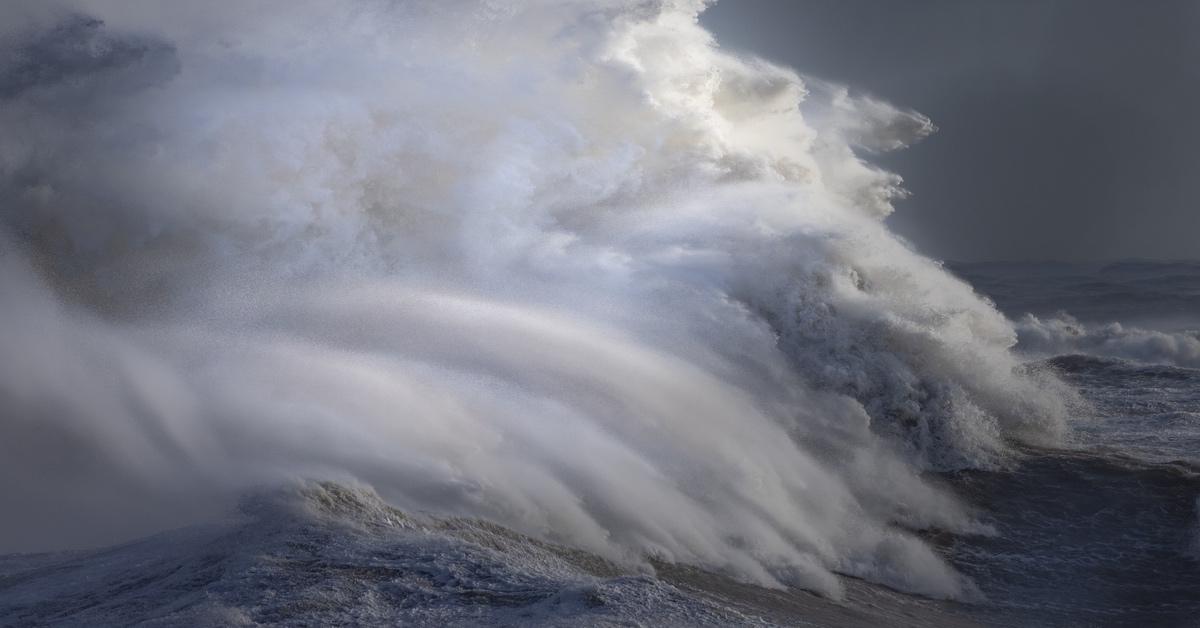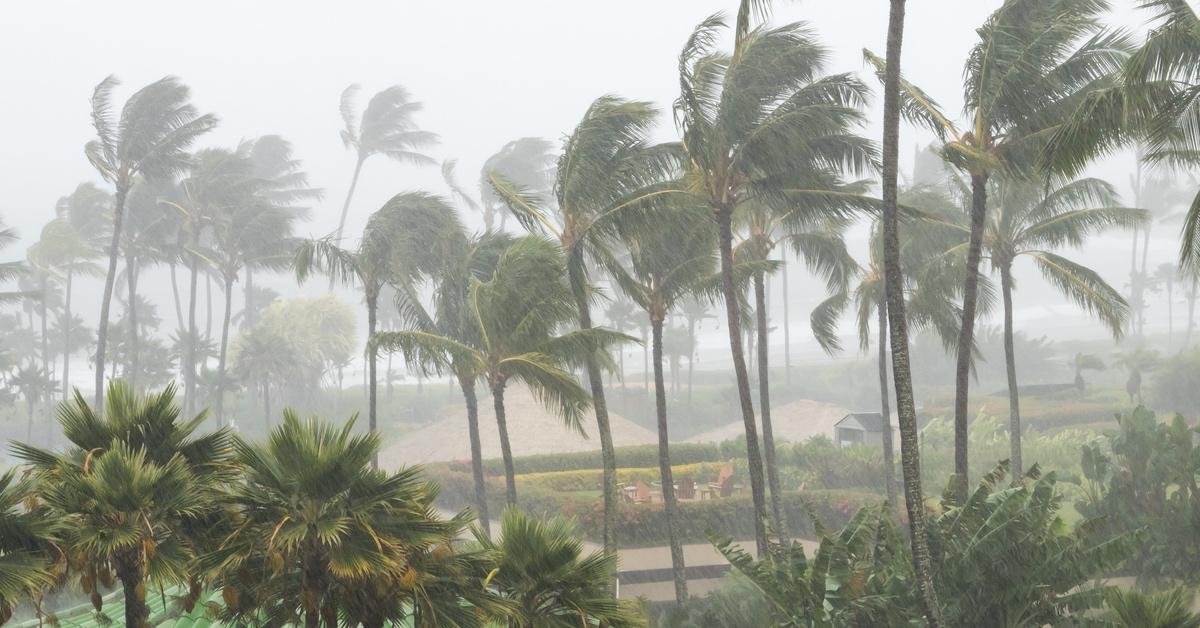Researchers at Colorado State University Anticipate 23 Named Hurricanes in 2024
"This is the highest April forecast that we have put out,” said Philip Klotzbach, a Colorado State meteorologist and Atlantic hurricane forecaster.
Updated April 8 2024, 9:30 a.m. ET

The climate crisis is completely changing planet Earth as we know it. The ice caps are slowly but surely melting, sea levels are rising at an alarming rate, the ocean has basically turned into a hot tub, weather patterns are totally transforming, and even hurricane season is changing.
With an increase in harrowing natural disasters such as monumental floods and scorching wildfires, it's sadly no surprise that hurricanes are on a path to increasing frequency and destructiveness.
Here's what you need to know about how hurricane season for the east coast is potentially worsening, explained.

The North Atlantic hurricane season could be "so far above average," due to global warming.
According to NBC News, on April 5, 2024, Colorado State University released its predictions for the 2024 Atlantic (or East Coast) hurricane season. Forecasters predicted a whopping 23 named storms for the season. Per the Associated Press, a typical hurricane year has 14 named storms.
According to NBC News, there are two primary reasons for the uptick in storms. First, because of extremely high ocean temperatures in 2024, which makes hurricanes more likely and more intense. Second, the natural effects of La Niña.
Tragically, sea temperatures have skyrocketed throughout 2024, a trend caused by climate change. In February 2024, one study examining the Saffir-Simpson hurricane wind scale pointed out that hurricane winds are becoming more severe, also thanks to the climate crisis.

John Morales, a meteorologist and hurricane specialist for NBC 6 South Florida, told NBC News that he feared that climate change was accelerating the severity of storms and leaving citizens unprepared.
"One of these days, there’s going to be a mundane tropical storm, which 36 hours later, will make landfall in Miami as a Category 4 hurricane. And people may not prepare like they should," he said.
In 2022, researchers determined climate change is also causing hurricane season to start earlier.
The Atlantic hurricane season typically begins on Jun. 1 and lasts until roughly Nov. 30, but since 1979, it's been starting earlier and earlier, according to USA Today.
Brian McNoldy, a senior research associate at the University of Miami Rosenstiel School of Marine, Atmospheric, and Earth Science, wrote on X (formerly known as Twitter), "The ocean heat content in the tropical east Atlantic is now *3 MONTHS* ahead of normal."
A group of researchers took it upon themselves to study why the Atlantic hurricane season starts earlier than normal.
"The concern here is that this is, you know, historically very unusual," Ryan Truchelut, Weather Tiger's chief meteorologist, told ABC News after the study was published in Nature Communications on Aug. 16, 2022.

At the time, NOAA was trying to determine if they should change the official start date of hurricane season, for the sake of East Coast residents.
"Numerous Atlantic basin tropical cyclones have recently developed prior to the official start of hurricane season, including several pre-season landfalls in the continental United States," the study reads. "Genesis potential index value increases in the western Atlantic basin are primarily driven by warming ocean temperatures."
In short: the only way to stop natural disasters is to address climate change head-on and begin working on solutions. Without it, hurricanes could only increase in frequency and severity.
This article, originally published on Aug. 17, 2022, has been updated to reflect new research.